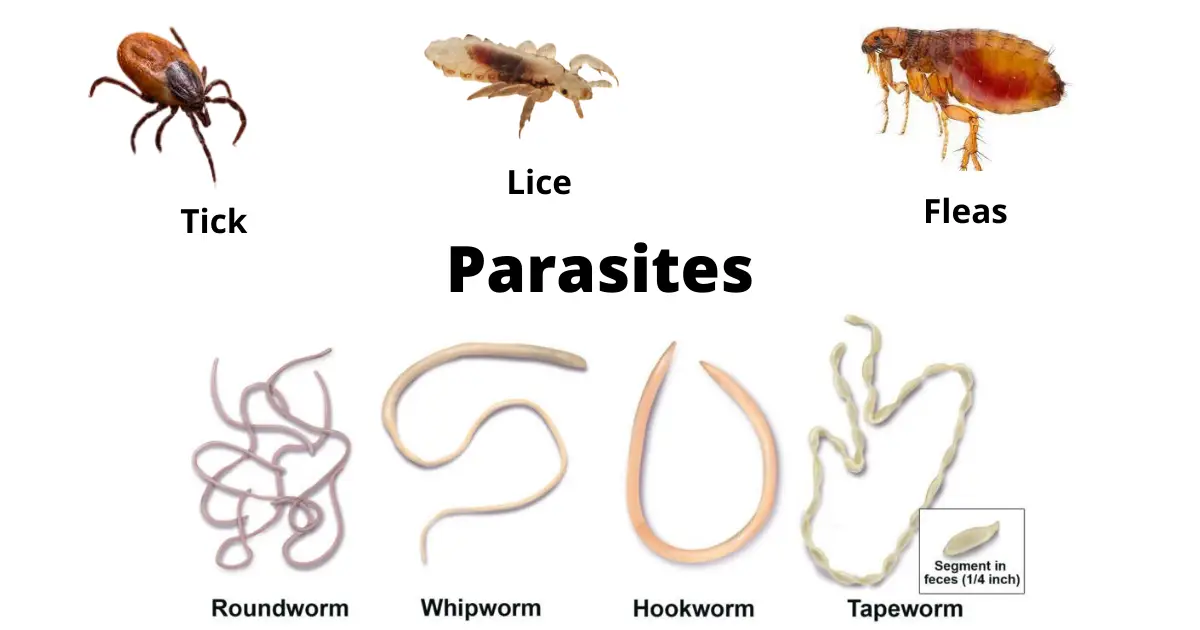
Parasites are organisms that live in or on a host, deriving their nutrients at the host’s expense. These unwelcome guests can affect humans of all ages, causing a variety of health issues. While many are microscopic, their effects on the body can be substantial.
A parasite is an organism that cannot live independently and relies on a host for survival. Parasites often cause harm to their host by feeding on its nutrients, damaging tissues, and disrupting normal bodily functions. They can inhabit different parts of the body, including the intestines, skin, blood, and other organs.
Types of Parasites That Infest Humans
Parasites can broadly be classified into three categories:
- Protozoa
- Single-celled organisms that can multiply inside the human body.
- Examples: Giardia lamblia (causing giardiasis), Plasmodium species (causing malaria).
- Helminths (Worms)
- Multicellular organisms, including:
- Roundworms (Ascaris lumbricoides).
- Tapeworms (Taenia species).
- Flukes (Schistosoma species).
- Multicellular organisms, including:
- Ectoparasites
- Parasites that live on the surface of the host.
- Examples: lice, fleas, ticks, and mites.
Parasites That Commonly Affect Children and Adults
- Children: Pinworms (Enterobius vermicularis), Giardia, head lice.
- Adults: Roundworms, hookworms, tapeworms, and protozoa like Entamoeba histolytica.
How Parasites Enter the Human Body
Parasites gain entry into the body through several pathways, including:
- Contaminated Food and Water
- Eating undercooked meat or consuming unwashed produce.
- Drinking untreated water containing cysts or eggs.
- Direct Contact
- Skin contact with contaminated soil or water.
- Physical contact with an infected person or animal.
- Insect Bites
- Mosquitoes transmitting malaria or filariasis.
- Ticks spreading Lyme disease.
- Poor Hygiene
- Lack of handwashing after using the restroom or before eating.
What Do Parasites Do Inside the Body?
Once inside, parasites begin exploiting the host’s resources. Depending on their type:
- Intestinal parasites may absorb nutrients, leading to malnutrition.
- Bloodborne parasites can destroy red blood cells or damage organs like the liver and lungs.
- Skin parasites may cause itching, irritation, or infections.
Symptoms of Parasitic Infestations
The symptoms vary depending on the parasite type and location in the body. Common signs include:
- Gastrointestinal Symptoms
- Diarrhea, abdominal pain, bloating, nausea, weight loss.
- Systemic Symptoms
- Fatigue, fever, anemia, muscle aches.
- Skin-Related Symptoms
- Itching, rashes, or visible sores.
- Neurological Symptoms (in severe cases)
- Headaches, seizures, or confusion.
What Causes Symptoms?
Symptoms arise from:
- Tissue Damage: Caused by parasite movement, feeding, or reproduction.
- Immune Response: The body’s defense mechanisms may result in inflammation and discomfort.
- Toxin Release: Parasites may excrete harmful substances.
Preventive Measures
Preventing parasitic infections involves maintaining good hygiene and awareness:
- Personal Hygiene
- Wash hands frequently, especially before eating and after using the restroom.
- Food Safety
- Cook meat thoroughly.
- Wash fruits and vegetables before consumption.
- Water Safety
- Drink only clean, treated water.
- Avoid swimming in contaminated water sources.
- Environmental Hygiene
- Keep living spaces clean.
- Use protective measures like bed nets to avoid insect bites.
Homeopathic Remedies for Parasitic Infestations
- Cina
- Effective for intestinal worms, especially in children.
- Symptoms: itching of the anus, restlessness, and irritability.
- Calcarea Carbonica
- For individuals prone to digestive issues and worms.
- Teucrium Marum
- Used for pinworm infestations with intense anal itching.
- Spigelia
- Beneficial for roundworms causing abdominal pain.
- Sulphur
- For skin conditions related to parasitic infestations.
- Natrum Muraticum
- For chronic parasitic issues and weakness caused by infestations.
- Antimonium Crudum
- Addresses nausea, diarrhea, and indigestion caused by worms.
- Abrotanum
- Useful in cases where worms lead to wasting or poor growth in children.
- Nux Vomica
- For digestive complaints like bloating and cramping due to parasites.
- Chamomilla
- Relieves irritability and restlessness caused by parasitic infections in children.
- Chenopodium Anthelminticum
- Effective for intestinal worms, particularly roundworms.
- Symptoms: Digestive disturbances with bloating and abdominal discomfort.
- Granatum
- Specifically useful for tapeworm infestations.
- Symptoms: Itching in the rectum, nausea, and abdominal pain.
- Filix Mas
- Commonly used for threadworms and tapeworms.
- Symptoms: Appetite disturbances, grinding teeth, and intestinal irritation.
- Sabadilla
- Ideal for cases where worms cause irritation and restlessness, particularly in children.
- Symptoms: Excessive saliva, stomach upset, and a constant urge to swallow.
- Silicea
- Helps eliminate parasitic toxins and improve immunity.
- Symptoms: Weakness, fatigue, and chronic parasitic infections.
- Podophyllum
- For parasites causing diarrhea and severe abdominal pain.
- Symptoms: Gurgling in the abdomen, weakness, and exhaustion.
- Mercurius Solubilis
- Addresses infections where there is an inflammatory response.
- Symptoms: Swollen lymph nodes, fever, and a metallic taste in the mouth.
- Arsenicum Album
- For infections accompanied by severe diarrhea, vomiting, or weakness.
- Symptoms: Restlessness, anxiety, and dehydration due to parasitic toxins.
- Tanacetum Vulgare
- Useful for pinworms and their associated symptoms.
- Symptoms: Crawling sensation around the anus, irritability, and insomnia.
- Helminthocorton
- A remedy with a broad spectrum against various types of worms.
- Symptoms: Digestive upset, poor appetite, and nutrient deficiencies.
Looking for a detox or a Parasite cleanse package BOOK A FREE DISCOVERY CALL TODAY
